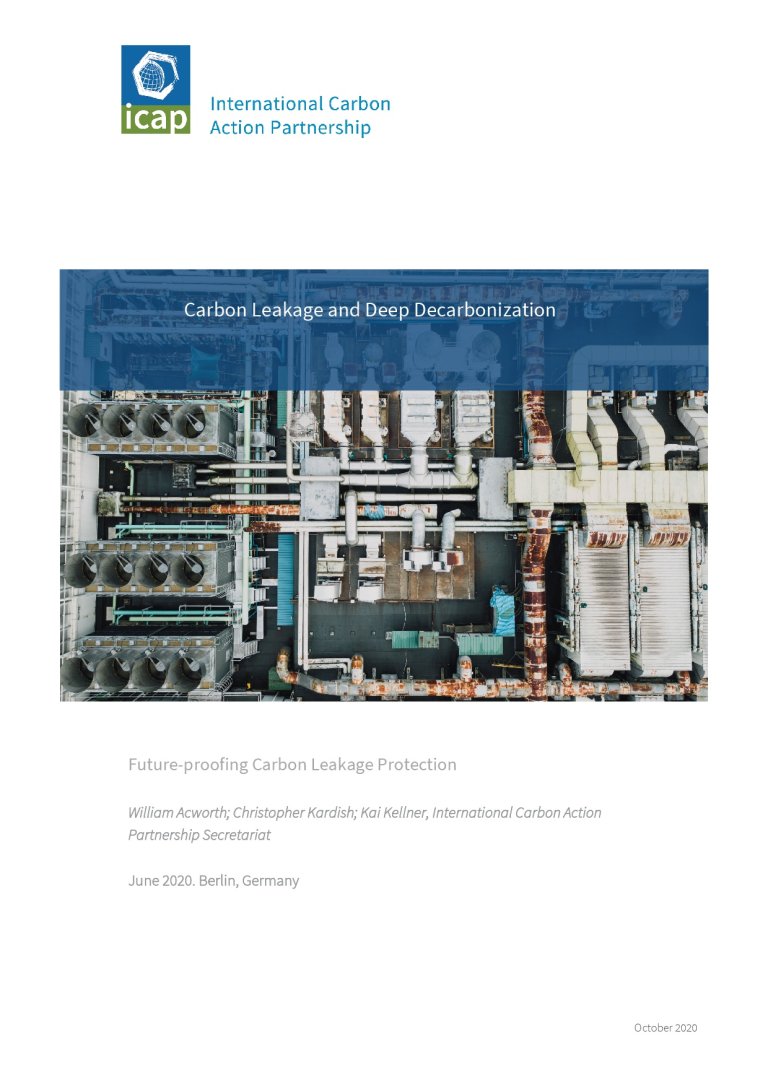Carbon Leakage and Deep Decarbonization Report


Category
Topics
Release date
Language
A small group of industrial commodities such as steel, cement, aluminum, and various chemical products account for around 22% of global CO2 emissions. Often referred to as basic materials, these goods play a vital role in economic development, and as a result global demand is expected to increase dramatically – up to fourfold this century. That makes them an inescapable part of the net-zero equation, but tackling emissions from basic materials poses unique challenges.
This report examines the challenge of industrial decarbonization, including its drivers and the role of carbon pricing, which is further complicated by the risk of carbon leakage and impacts on industrial competitiveness. ETSs have dealt with the dangers of carbon leakage and loss of competitiveness through free allocation, but this approach will face constraints in the coming decades and fails to fully incentivize the abatement options that are needed to achieve carbon neutrality.
In the report we develop a framework for assessing climate mitigation approaches that balances the objectives of leakage protection, incentives for decarbonization, and political durability. We then apply this framework in a review of free allocation across ETSs and alternatives to free allocation, including border carbon adjustments (BCA) and consumption charges. We also review practices of assessing leakage risk used in ETSs to date and evaluate alternative criteria that could offer a more targeted approach. Lastly, the report provides an overview of policies to complement carbon pricing in driving industrial decarbonization.
